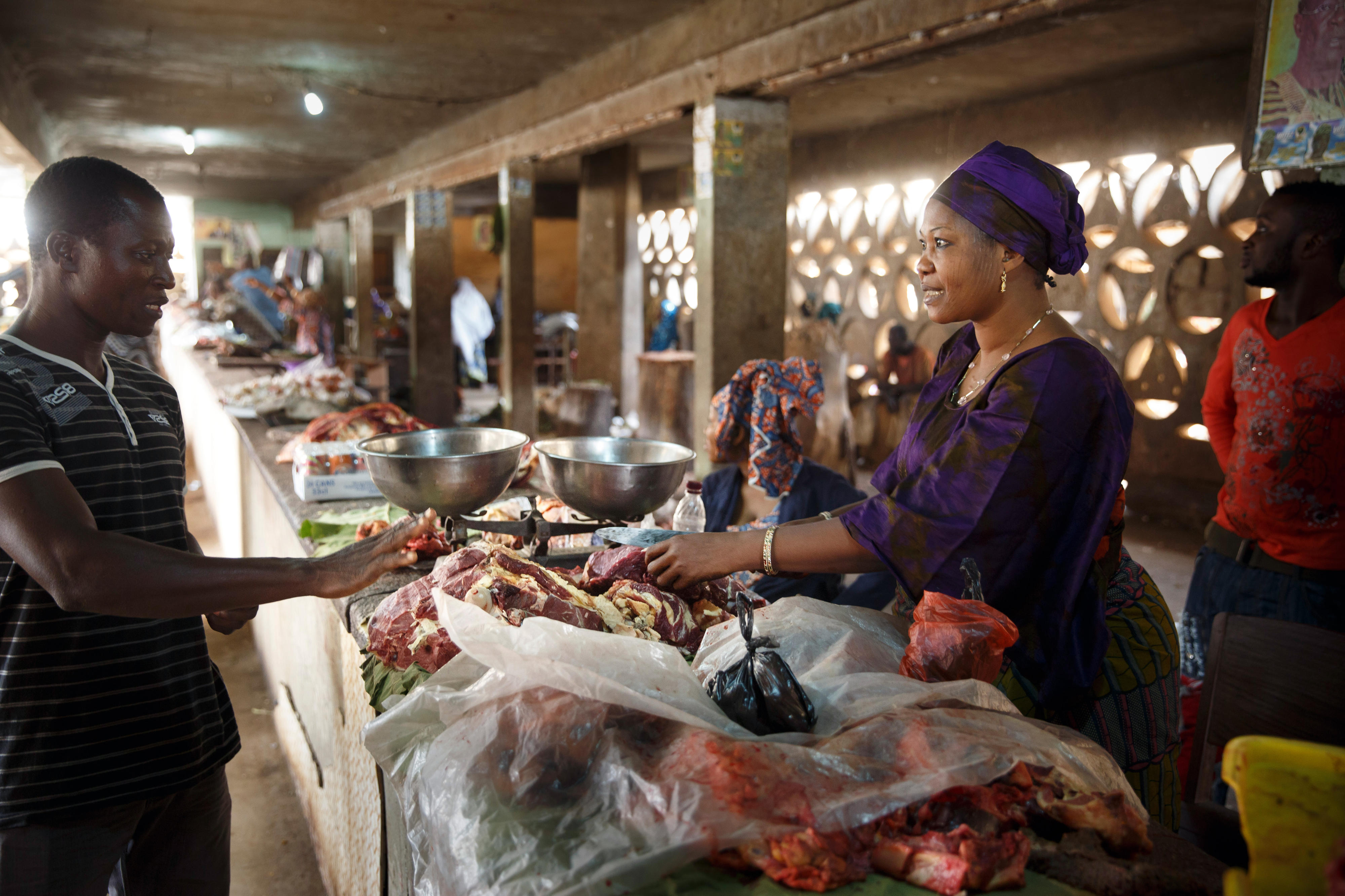Market in Togo
Copyright© Ute Grabowsky/photothek.net
Core area “Peaceful and inclusive societies” Improved infrastructure and services at the local level
Local elections, which had been postponed several times, took place in 2019 – for the first time since 1987. However, local authorities still lack the trained personnel and financial resources they need to fulfil their new role. German support is geared towards improving the provision of basic economic infrastructure and public services and enhancing popular participation in politics at the local level.
As part of the reform partnership, relevant activities will be expanded both at the municipal and at the national level. Among other things, Germany is supporting public financial management reform, assisting monitoring bodies such as the supreme audit institution, and helping with the implementation of a national anti-corruption strategy.
More revenue and investment
As part of the cooperation programme, support is being provided to local authorities to help them increase their revenues and improve the responsiveness of their services to citizens' needs. Among other things, local development plans are being drafted, tax registers are being set up, citizens' affairs offices are being established to provide services to local people, and training is being provided to municipal workers. Efforts are also under way to modernise the civil registration system. There are campaigns to educate the public about the importance of birth certificates for children's access to school.
The municipalities that have received support have been able to significantly increase their revenue and their public investments. Since 2017, cofinancing from the EU has made it possible to expand the programme to all five regions of Togo. As part of the reform partnership, support will be provided to the establishment and implementation of a financial transfer mechanism for municipalities, Togo's support fund for local authorities (Fonds d'Appui aux Collectivités Territoriales, FACT).
Local infrastructure development
In parallel, the German government has been funding the development of local infrastructure. Support is being provided, in particular, for the construction of markets in medium-sized towns, as markets play an important role for local and regional economies. People can use their mobile phones to take part in the planning and monitoring of programme activities.
The BMZ is also providing additional support for the construction of town halls in the newly created municipalities.
Results of development cooperation in the period of 2012 to 2020
- 7.5 million people are now able to turn to citizens' affairs offices with their questions and ideas.
- An information and participation system has successfully been tested in several municipalities and is now being developed further, with a view to giving citizens a say in the development of their communities.
- Functioning civil registration offices have guaranteed the enrolment of 200,000 children in school and have provided civil status documentation for about 600,000 citizens.
- Nearly 90 per cent of the civil servants at the Decentralisation Ministry have received training on envisaged reforms in the fields of decentralisation and public financial management.
- 600,000 citizens in 13 partner municipalities are able to actively participate in the development of their communities through local coordination committees and neighbourhood development committees.
